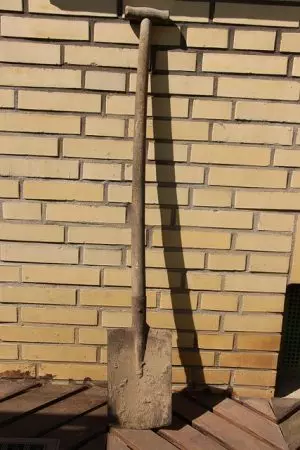Basement floor cracks can range from harmless to signs of serious foundation issues driven by factors like settlement, subsidence, or poor soil conditions. Homeowners should watch for widening cracks, bulging walls, or uneven floors and consult Foundation Contractors for expert assessments. While minor cracks can be DIY'd with epoxy injection or concrete patching, severe cases require professional techniques like carbon fiber wraps or underpinning to ensure long-term structural stability. Regular inspections, proactive maintenance, and early intervention are key to preventing costly repairs. Foundation Contractors offer tailored solutions, ensuring durability and addressing both visible cracks and underlying causes.
Basement floor cracks can be a common concern for homeowners, ranging from minor aesthetic issues to potential structural problems. Understanding the causes and assessing the severity is crucial before deciding on repair methods. This article explores comprehensive solutions for basement floor cracks, from initial assessment to DIY vs professional options, choosing the right foundation contractors, and maintenance tips. Learn when to involve experts and discover successful restoration projects, ensuring your basement remains crack-free. Key focus: foundation contractors.
Understanding Basement Floor Cracks: Common Causes and Initial Assessment

Basement floor cracks can be a common issue, often arising from various underlying factors. Understanding these causes is the first step in finding effective solutions. Foundation movement, whether due to settlement or uneven subsidence, is a primary reason for cracks. This can occur due to poor soil conditions, inadequate foundation support, or changes in humidity levels. Another frequent cause is structural issues within the building itself, such as improper framing or differential settling of different parts of the structure.
When assessing basement floor cracks, homeowners should look out for signs like widening cracks, bulging walls, or uneven floors. An initial visual inspection can provide valuable insights, but for a comprehensive evaluation, consulting with professional foundation contractors is advisable. They employ advanced techniques and tools to determine the extent of the problem and offer tailored solutions to address the specific causes.
When to Call Foundation Contractors for Serious Cracks

Cracks in your basement floor may seem like a minor issue, but they could indicate more serious problems with your home’s foundation. If the cracks are wide (wider than a pencil), growing over time, or accompanied by other signs like uneven floors, sticking doors, or windows that won’t close properly, it’s time to call in Foundation Contractors. These professionals can assess whether the cracks are structural or cosmetic and provide solutions tailored to your home’s unique needs. Regular inspections by a contractor can help prevent further damage and ensure the longevity of your home’s foundation.
While some minor cracks can be repaired with DIY methods, serious cracks often require specialized equipment and expertise. Foundation Contractors have the tools and knowledge to address the root cause of the problem, whether it’s settling soil, shifting tectonic plates, or poor initial construction. Prompt action from a qualified contractor can save you from costly repairs down the line, ensuring your home remains a safe and stable structure for years to come.
Types of Basement Floor Crack Repair Methods

Basement floor cracks can range from mere aesthetics to serious structural issues, and choosing the right repair method is crucial. There are several types of crack repair techniques available, each addressing specific crack types and severity levels.
For smaller, non-structural cracks, epoxy injection is a popular choice. This method involves injecting a liquid epoxy into the crack, which hardens and expands to fill the void. It’s cost-effective and can prevent further damage. On the other hand, for larger cracks or those indicating foundation problems, professional foundation contractors might recommend structural repair solutions like carbon fiber wraps or concrete patching. Carbon fiber wraps are strong and flexible, reinforcing the crack and preventing it from spreading, while concrete patching is ideal for filling extensive breaks in the floor.
DIY vs Professional: Which Option is Right for Your Budget and Time?

When it comes to fixing basement floor cracks, the decision between DIY and professional services depends on your budget and available time. Do-it-yourself (DIY) solutions can be an attractive option for those looking to save costs and take control of the repair process. There are numerous online tutorials and products available that guide homeowners through various crack repair methods. However, basement floor cracks often indicate more significant structural issues, and DIY repairs might not address the root cause effectively.
Hiring foundation contractors is particularly recommended if you suspect severe structural damage or want a long-term solution. Professional contractors have the expertise and tools to assess the situation accurately. They can provide tailored solutions, such as underpinning, foundation repair, or crack injection, ensuring your basement floor is stable and secure. While it may come at a higher cost, this option guarantees quality work and prevents future damage, making it a worthwhile investment in the long run.
Choosing the Right Foundation Contractor: What to Look For

When it comes to addressing basement floor cracks, selecting the right foundation contractor is paramount. Look for professionals with extensive experience in structural repair and a proven track record of successful projects. Verify their licensing and insurance to ensure compliance with local regulations and protection for your investment.
Inquire about their approach to diagnosing issues, as effective solutions depend on accurate assessments. Reputable foundation contractors will conduct thorough inspections, use advanced technologies if needed, and provide clear, detailed estimates. Choose a contractor who prioritizes communication, keeping you informed throughout the process, and offers warranty coverage for their work, demonstrating confidence in the durability of their repairs.
The Step-by-Step Process of Basement Floor Crack Repair

Repairing basement floor cracks involves a systematic approach that many homeowners can manage with the right tools and materials. First, assess the crack’s severity, noting its length, width, and depth. If it’s wider than 1/4 inch or growing, consult a professional foundation contractor for deeper issues. For smaller cracks, prepare by clearing debris and ensuring proper ventilation. Next, clean the crack using a wire brush to remove any loose concrete or debris. This step ensures that your repair material will adhere correctly.
After cleaning, apply an epoxy injection into the crack using a syringe or pump. Let the epoxy cure according to the manufacturer’s instructions before proceeding. Once cured, use a concrete patching compound to fill the crack, ensuring it matches the surrounding floor level. Lightly sand the patched area to smooth it out and prime it for painting. Finally, apply a protective coat of paint designed for basement floors to prevent future moisture intrusion and further damage.
Common Mistakes to Avoid During Crack Repair and Prevention

When addressing basement floor cracks, it’s crucial to avoid common mistakes that can lead to further damage or ineffective repairs. One major blunder is attempting DIY fixes without proper knowledge and tools, which may only temporarily mask the issue. Foundation contractors emphasize that understanding the root cause of the crack is vital for long-lasting solutions. Ignoring structural problems or improper moisture management can result in recurring cracks.
Another mistake is using the wrong materials or techniques. Using subpar products or imprecise methods can compromise the integrity of the repair, leading to future instability. Foundation contractors recommend seeking expert advice and considering professional evaluations to ensure accurate diagnosis and effective crack prevention strategies.
Maintenance Tips to Prevent Future Basement Floor Cracks

To prevent future basement floor cracks, regular maintenance is key. Start by inspecting your basement floor annually for any signs of stress or damage. Address minor cracks promptly using appropriate repair materials like epoxy or polyurethane injections, which can fill and strengthen these openings before they expand. Additionally, ensure proper drainage around your home by clearing debris from gutters and downspouts, installing French drains if necessary, and directing rainwater away from your foundation.
Another crucial step is to maintain a consistent humidity level in your basement. High moisture content can cause or exacerbate cracks, so consider investing in a dehumidifier if needed. Moreover, keep an eye on any changes in the soil around your home, as shifting earth can put pressure on foundations and lead to cracks. Regularly monitoring these factors will help you catch potential issues early on, preventing more extensive (and costly) repairs down the road, with the assistance of professional foundation contractors if necessary.
Case Studies: Successful Basement Floor Crack Restoration Projects

Basement floor cracks can be a significant concern for homeowners, but numerous successful restoration projects prove that solutions exist. Case studies highlight the work of skilled foundation contractors who have restored damaged basement floors to their original condition. These experts employ advanced techniques and materials to address not only the visible cracks but also the underlying causes, ensuring long-lasting repair.
One notable project involved a home with extensive heave-related cracks due to soil settlement. Foundation contractors implemented a comprehensive plan that included underpinning, installing steel supports, and using epoxy injections to fill and stabilize the cracks. The result was a transformed basement floor, free from gaps and moisture intrusion, enhancing the overall structural integrity of the property. Such successful cases demonstrate the expertise and resources available to homeowners seeking basement floor crack solutions from qualified foundation contractors.
